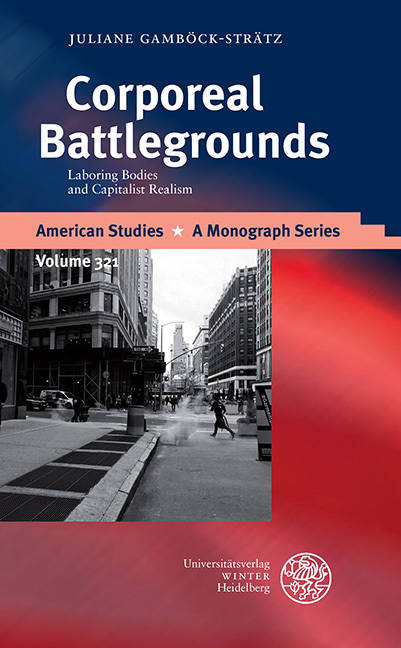
- Afhalen na 1 uur in een winkel met voorraad
- Gratis thuislevering in België vanaf € 30
- Ruim aanbod met 7 miljoen producten
- Afhalen na 1 uur in een winkel met voorraad
- Gratis thuislevering in België vanaf € 30
- Ruim aanbod met 7 miljoen producten
Zoeken
€ 55,45
+ 110 punten
Omschrijving
'Corporeal Battlegrounds' explores the depiction and critical potential of the entanglement of work and embodiment in contemporary realist U.S.-American novels. It argues that manifesting the elusive effects of contemporary capitalism in the figure of the laboring body allows for a critique of capitalism. The laboring body thus provides a gateway to understanding how power relations are perpetuated by the work we engage in and to revealing the inherent logic of capitalism. To provide a comprehensive view, each larger section examines one aspect of contemporary capitalism in conversation with a novel: social acceleration, digitalization, financialization, and 24/7 capitalism. These sections question how the novels approach the representability of economic relations and how the depiction of the laboring body functions to open up an area of tension to criticize the link between the laboring body, economic participation, and the perception of failure and success.
Specificaties
Betrokkenen
- Auteur(s):
- Uitgeverij:
Inhoud
- Aantal bladzijden:
- 310
- Taal:
- Engels
- Reeks:
- Reeksnummer:
- nr. 321
Eigenschappen
- Productcode (EAN):
- 9783825395346
- Verschijningsdatum:
- 28/08/2023
- Uitvoering:
- Hardcover
- Formaat:
- Genaaid
- Afmetingen:
- 135 mm x 211 mm
- Gewicht:
- 331 g

Alleen bij Standaard Boekhandel
+ 110 punten op je klantenkaart van Standaard Boekhandel
Beoordelingen
We publiceren alleen reviews die voldoen aan de voorwaarden voor reviews. Bekijk onze voorwaarden voor reviews.











